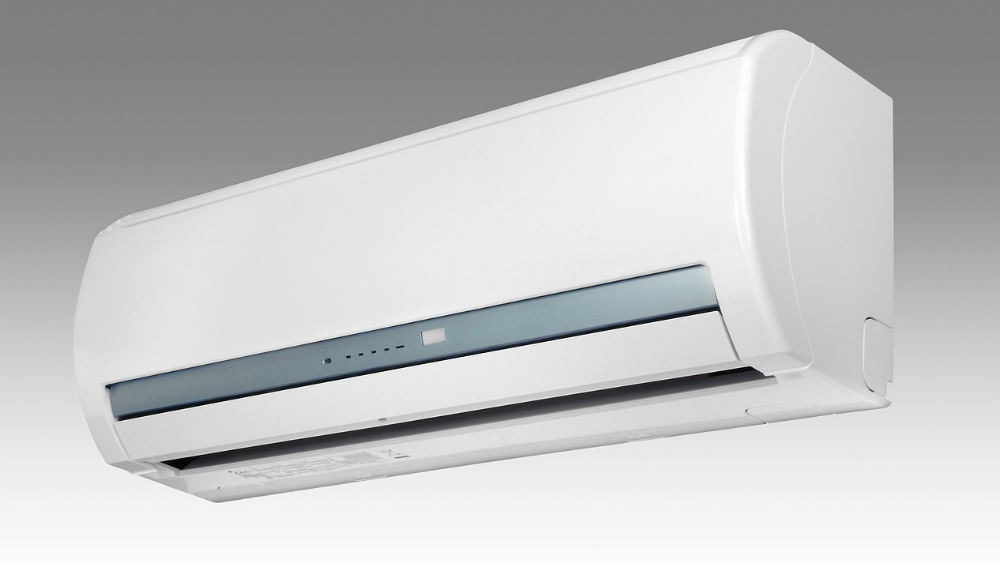
AC Repair: Everything You Need to Know for Efficient Cooling
Air conditioning systems have become an essential part of modern life, providing comfort and a cool environment in homes, offices, and commercial spaces. However, like any other appliance, air conditioners are prone to wear and tear over time. Regular maintenance and timely repairs are crucial to ensure that your AC unit continues to function efficiently. In this comprehensive guide, we’ll explore everything you need to know about AC repair, including common issues, how to identify them, and tips on choosing the right repair service.
Why Regular AC Repair and Maintenance are Important
Air conditioners are complex systems with various components that must work together to cool your space effectively. Over time, these components can wear out, leading to reduced efficiency or complete system failure. Regular AC repair and maintenance are vital for several reasons:
1. Enhanced Cooling Efficiency
When your air conditioner is in top shape, it cools your space more efficiently. However, even a minor issue, such as a dirty filter or low refrigerant levels, can cause your AC to work harder than necessary, leading to higher energy consumption and uneven cooling. Regular maintenance and timely repairs ensure that your unit operates at peak efficiency.
2. Cost Savings
A well-maintained AC unit not only runs more efficiently but also saves you money in the long run. Small issues caught early can be repaired at a fraction of the cost of major repairs or replacements. Additionally, a more efficient AC unit uses less energy, leading to lower utility bills.
3. Extended Lifespan
Air conditioners are a significant investment, and you want them to last as long as possible. Regular maintenance and repairs can extend the life of your AC unit by preventing wear and tear from escalating into more serious problems. This means you won’t have to replace your unit prematurely, saving you the cost of a new system.
4. Improved Air Quality
Your AC unit plays a critical role in maintaining indoor air quality. A malfunctioning unit can circulate dust, mold, and other allergens, leading to poor air quality and potential health issues. Regular cleaning and repairs help keep your AC unit free from contaminants, ensuring that the air in your home is clean and healthy.
5. Prevention of Major Breakdowns
No one wants their AC unit to break down in the middle of a hot summer day. Regular inspections and repairs help identify potential problems before they cause a major breakdown. This proactive approach ensures that your AC unit is always ready to provide reliable cooling when you need it most.
Common AC Problems and Their Solutions
Air conditioners can experience a range of issues, some of which are more common than others. Here are some of the most frequent AC problems and their potential solutions:
1. AC Not Turning On
One of the most frustrating issues homeowners face is an AC unit that won’t turn on. This could be due to a faulty thermostat, tripped circuit breaker, or a blown fuse. Before calling a professional, check the thermostat settings and make sure the circuit breaker hasn’t been tripped. If these are not the issue, it’s time to call a technician to inspect the electrical components of your system.
2. Insufficient Cooling
If your AC is running but not cooling your space effectively, it could be due to several reasons, including a dirty air filter, low refrigerant levels, or a malfunctioning compressor. Cleaning or replacing the air filter is a simple task that can often resolve the issue. If the problem persists, you may need a professional to check the refrigerant levels and inspect the compressor.
3. Water Leaks
Water leakage from your AC unit is usually a sign of a clogged condensate drain line, which prevents moisture from being properly drained. In some cases, the problem could be a result of a broken condensate pump. Cleaning the drain line can often resolve the issue, but if the pump is faulty, you’ll need to replace it.
4. Strange Noises
Air conditioners should run quietly, so if you hear unusual noises like grinding, banging, or squealing, it’s a sign that something is wrong. These noises could be caused by loose parts, a failing motor, or debris trapped inside the unit. It’s important to address these noises promptly by tightening any loose components or replacing faulty parts to prevent further damage.
5. Foul Odors
If your AC is emitting unpleasant smells, it could be due to mold or bacteria growth within the unit or ductwork. This is often caused by moisture buildup, which creates an ideal environment for mold to thrive. Cleaning the evaporator coils and replacing the air filter can help eliminate odors. In some cases, duct cleaning may be necessary.
6. High Humidity Levels
Your AC should not only cool your space but also help control humidity levels. If you notice that your home feels more humid than usual, it could be due to an oversized unit, low refrigerant levels, or a malfunctioning dehumidification system. Ensuring that your unit is properly sized for your space and checking refrigerant levels can help maintain comfortable humidity levels.
DIY Maintenance Tips to Prevent AC Problems
While some AC issues require professional intervention, there are several maintenance tasks you can perform yourself to keep your unit in good condition:
1. Regularly Replace or Clean the Air Filter
The air filter in your AC unit traps dust, dirt, and other particles, preventing them from entering your system and affecting its performance. Over time, the filter can become clogged, reducing airflow and forcing your AC to work harder. Depending on your AC model, you should replace or clean the air filter every 1-3 months.
2. Clean the Condenser Coils
The condenser coils in your outdoor unit can accumulate dirt, leaves, and debris, which can reduce their ability to dissipate heat. Regularly cleaning the coils helps maintain efficient cooling and prevents overheating. Be sure to turn off the power to your AC unit before cleaning the coils.
3. Check the Thermostat Settings
Ensure that your thermostat is set to the correct temperature and mode. If your AC unit is not responding to the thermostat settings, it may be time to replace the batteries or consider upgrading to a programmable thermostat for better control and energy savings.
4. Inspect the Condensate Drain Line
The condensate drain line removes excess moisture from your AC unit. Over time, it can become clogged with algae, mold, or debris, leading to water leaks. Regularly inspect the drain line and clean it as needed to prevent blockages.
5. Keep the Outdoor Unit Clear
The outdoor unit of your AC system needs adequate airflow to function properly. Ensure that there are no obstructions, such as plants, debris, or outdoor furniture, within a few feet of the unit. This helps maintain efficient cooling and prevents overheating.
6. Check for Refrigerant Leaks
Low refrigerant levels can cause your AC unit to lose its cooling efficiency. If you notice a drop in performance, it’s important to have a professional check for leaks and refill the refrigerant if necessary. Remember, handling refrigerant requires special equipment and should be done by a certified technician.
When to Call a Professional AC Repair Service
While DIY maintenance can help prevent many AC issues, there are times when professional intervention is necessary. Here are some situations where you should call an AC repair technician:
1. Frequent Cycling
If your AC unit frequently turns on and off, it could be due to an issue with the thermostat, electrical components, or an improperly sized unit. A professional technician can diagnose the problem and recommend the appropriate solution.
2. No Airflow
If your AC unit is running, but there’s no airflow coming from the vents, it could be due to a problem with the blower motor, fan, or ductwork. A professional can inspect these components and make the necessary repairs to restore proper airflow.
3. High Energy Bills
If you notice a sudden spike in your energy bills without a corresponding increase in usage, your AC unit may be operating inefficiently. A professional technician can perform an energy audit and identify any issues that may be causing your unit to use more energy than necessary.
4. Tripped Circuit Breaker
If your AC unit trips the circuit breaker frequently, it could be due to an electrical issue, such as a short circuit or overloaded circuit. It’s important to have a professional inspect your system to prevent potential damage or fire hazards.
5. Complete System Failure
If your AC unit stops working altogether, it’s time to call a professional. They can diagnose the issue and recommend whether a repair or replacement is the best course of action.
How to Choose the Right AC Repair Service
Choosing the right AC repair service is crucial to ensuring that your unit is repaired correctly and efficiently. Here are some factors to consider when selecting a repair service:
1. Experience and Expertise
Look for a repair service with a solid track record and years of experience in the HVAC industry. Experienced technicians are more likely to diagnose and repair issues accurately, ensuring your AC unit is restored to optimal performance.
2. Licensing and Certification
Ensure that the repair service you choose is licensed and certified to perform HVAC work in your area. This ensures that they meet industry standards and have the necessary skills to repair your AC unit safely and effectively.
3. Comprehensive Service Offerings
The best AC repair services offer a wide range of services, including emergency repairs, routine maintenance, and system installations. This ensures that you can rely on them for all your AC needs.
4. Transparent Pricing
Transparency in pricing is a key indicator of a trustworthy service provider. Look for companies that offer clear, upfront pricing without hidden fees. A good provider will give you an estimate before starting any work, so you know exactly what to expect.

